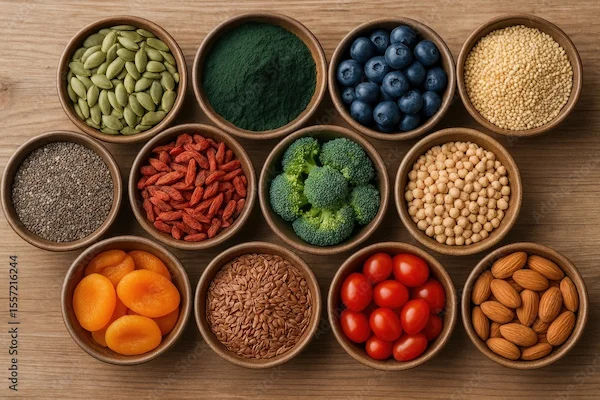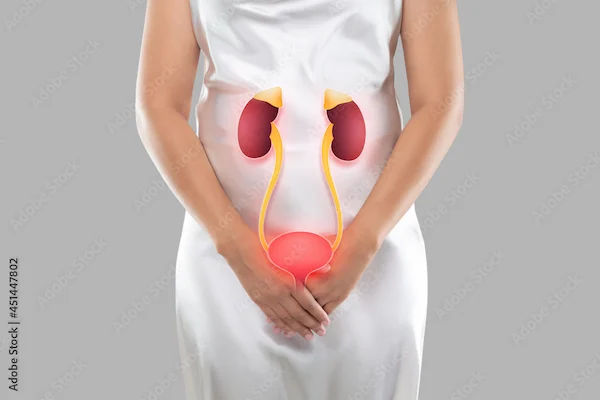Best Vitamins To Take After Hysterectomy
Discover the best vitamins to take after a hysterectomy to support recovery, improve bone health, boost immunity, and enhance overall well-being following surgery.

Written by Dr.Sonia Bhatt
Last updated on 4th Jul, 2025

Introduction
A hysterectomy is a major surgery that involves the removal of the uterus, and sometimes the ovaries and fallopian tubes as well. This procedure can have a significant impact on a woman’s body, including hormonal changes, bone health, and overall well-being. Proper nutrition, including essential vitamins, plays a crucial role in recovery and long-term health.
In this article, we’ll discuss the best vitamins to take after a hysterectomy, why they’re important, and how they can support your healing process.
Why Are Vitamins Important After Hysterectomy?
After a hysterectomy, your body goes through several changes, especially if the ovaries are also removed (oophorectomy). The ovaries produce hormones like estrogen and progesterone, which regulate bone health, mood, and energy levels. Without these hormones, women may experience:
Bone loss (osteoporosis risk increases)
Fatigue and low energy
Mood swings or depression
Weakened immune system
Slower wound healing
Taking the right vitamins can help counteract these effects and support faster recovery.
Best Vitamins to Take After Hysterectomy
This section discusses the key vitamins essential for recovery and why they matter.
1. Vitamin D
Why it’s important:
Supports bone health by helping the body absorb calcium
Reduces the risk of osteoporosis, especially after ovary removal
Boosts immunity and mood
Source:
Sunlight (15-20 minutes daily)
Fatty fish (salmon, mackerel)
Fortified dairy products
Supplements (consult your doctor for dosage)
2. Calcium
Why it’s important:
Essential for maintaining strong bones and teeth
Helps prevent bone loss after menopause or ovarian removal
Source:
Dairy products (milk, cheese, yoghurt)
Leafy greens (spinach, kale)
Almonds and fortified plant-based milk
Supplements (if dietary intake is insufficient)
3. Vitamin B Complex (B6, B12, Folate)
Why it’s important:
Supports energy levels and reduces fatigue
Helps with nerve function and mood regulation
B12 is crucial for red blood cell production
Source:
Whole grains, eggs, lean meats (B6, B12)
Leafy greens, beans, citrus fruits (folate)
Supplements (especially for B12 if absorption is an issue)
4. Vitamin C
Why it’s important:
Promotes wound healing and tissue repair
Strengthens the immune system
Acts as an antioxidant, reducing inflammation
Source:
Citrus fruits (oranges, lemons)
Bell peppers, strawberries, broccoli
Supplements (if needed)
5. Magnesium
Why it’s important:
Supports muscle relaxation and reduces cramps
Helps with sleep and anxiety management
Works with calcium for bone health
Source:
Nuts and seeds (almonds, pumpkin seeds)
Dark chocolate, whole grains
Supplements (if diet is lacking)
6. Omega-3 Fatty Acids
Why it’s important:
Reduces inflammation and supports heart health
Helps with mood regulation and brain function
Source:
Fatty fish (salmon, sardines)
Flaxseeds, chia seeds, walnuts
Fish oil supplements
7. Iron (If Needed)
Why it’s important:
Helps prevent anaemia, especially if heavy bleeding occurred before surgery
Supports energy levels and oxygen transport in the blood
Source:
Red meat, spinach, and lentils
Iron-fortified cereals
Supplements (only if prescribed by a doctor)
Lifestyle Tips for Better Recovery
In addition to vitamins, these lifestyle changes can help you recover faster and stay healthy:
Eat a balanced diet: Focus on whole foods, lean proteins, and plenty of fruits and vegetables
Stay hydrated: Drink enough water to help with digestion and healing
Exercise gently: Walking and light stretching can improve circulation and mood
Prioritise sleep: Rest is crucial for recovery
Manage stress: Try meditation, deep breathing, or yoga
When to Consult a Doctor?
While vitamins can support recovery, it’s important to:
Get blood tests to check for deficiencies (like Vitamin D or B12)
Discuss supplements with your doctor to avoid overdosing
Monitor symptoms like extreme fatigue, mood swings, or bone pain
If you need personalised advice, consider booking a consultation with a specialist through Apollo 24|7 for expert guidance.
Conclusion
Recovering from a hysterectomy takes time, but the right vitamins and lifestyle changes can make a big difference. Focus on a nutrient-rich diet, stay active, and consult your doctor for personalised recommendations.
Consult Top Gynaecologists
Consult Top Gynaecologists

Dr Swatika Kumari
Obstetrician and Gynaecologist
19 Years • MBBS, DGO, DNB Obstetrics & Gynaecology
Nashik
Apollo 24|7 Clinic - Maharashtra, Nashik

Dr. Priyanka Surisetty
Obstetrician and Gynaecologist
8 Years • MBBS, DGO
Visakhapatnam
Apollo 24|7 Clinic - Andhra Pradesh, Visakhapatnam

Dr. Veena H
Obstetrician and Gynaecologist
16 Years • MBBS DGO
Bangalore
Apollo 24|7 Clinic - Karnataka, Bangalore

Dr. Mona Yadav
Obstetrician and Gynaecologist
19 Years • MBBS, MD (Obstetrics & Gynaecology)
Dombivli
Nulife multispeciality, Dombivli

Dr. Asha Rani Singh
Obstetrician and Gynaecologist
24 Years • MBBS DGO
Delhi
Dr Asha Rani Singh Clinic, Delhi


